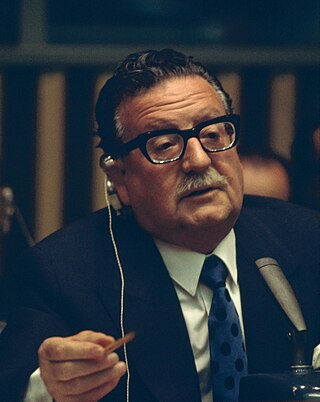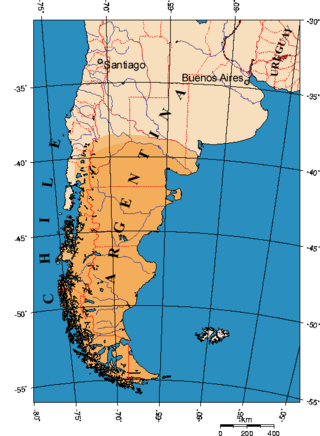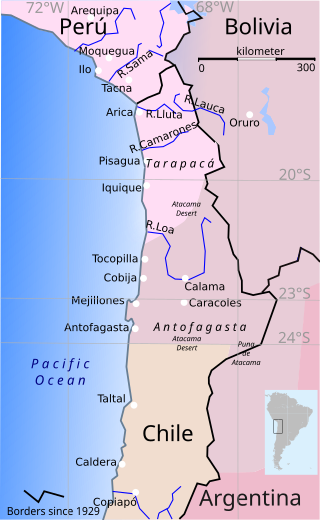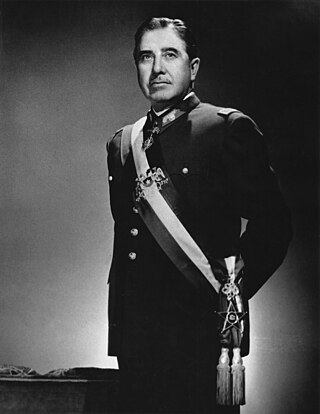| 24 March Friendly | Sweden | 1–2 | Solna, Sweden | |
| 18:00 UTC+1 | Toivonen | Report | Vidal Bolados | Stadium: Friends Arena Attendance: 48,134 Referee: Anthony Taylor (England) |
| 27 March Friendly | Denmark | 0–0 | Aalborg, Denmark | |
| 18:00 UTC+1 | Report | Stadium: Aalborg Stadium Attendance: 11,527 Referee: John Beaton (Scotland) |
| 31 May Friendly | Romania | 3–2 | Graz, Austria | |
| 16:00 UTC+2 | Stanciu Deac Budescu | Report | Maripán Reyes | Stadium: Sportzentrum Graz-Weinzödl Referee: Christopher Jäger (Austria) |
| 4 June Friendly | Serbia | 0–1 | Graz, Austria | |
| 20:00 UTC+2 | Report | Maripán | Stadium: Liebenauer Stadium Referee: Alexander Harkam (Austria) |
| 8 June Friendly | Poland | 2–2 | Poznań, Poland | |
| 21:45 UTC+2 | Lewandowski Zieliński | Report | Valdés Albornoz | Stadium: INEA Stadion Referee: Paolo Mazzoleni (Italy) |
| 11 September Friendly | South Korea | 0–0 | Suwon, South Korea | |
| 20:00 UTC+9 | Report | Stadium: Suwon World Cup Stadium Attendance: 40,127 Referee: Ryuji Sato (Japan) |
| 12 October Friendly | Peru | 3–0 | Miami, United States | |
| 20:00 UTC−4 | Roco Aquino | Report | Stadium: Hard Rock Stadium Referee: Armando Villarreal (United States) |
| 16 October Friendly | Mexico | 0–1 | Querétaro, Mexico | |
| 20:45 UTC−6 | Report | Castillo | Stadium: Estadio Corregidora Attendance: 40,000 Referee: Joel Aguilar (El Salvador) |
| 16 November Friendly | Chile | 2–3 | Rancagua, Chile | |
| 21:15 UTC−3 | Vegas Sánchez | Report | Waston Matarrita | Stadium: Estadio El Teniente Referee: Germán Delfino (Argentina) |
| 20 November Friendly | Chile | 4–1 | Temuco, Chile | |
| 21:15 UTC−3 | Vidal Sánchez Castillo | Report | López | Stadium: Estadio Germán Becker Referee: Michael Espinoza (Peru) |
Note

Chile, officially the Republic of Chile, is a country located in western South America. It is the southernmost country in the world and the closest to Antarctica, stretching along a narrow strip of land between the Andes Mountains and the Pacific Ocean. With an area of 756,102 square kilometers (291,933 sq mi) and a population of 17.5 million as of 2017, Chile shares borders with Peru to the north, Bolivia to the northeast, Argentina to the east, and the Drake Passage to the south. The country also controls several Pacific islands, including Juan Fernández, Isla Salas y Gómez, Desventuradas, and Easter Island, and claims about 1,250,000 square kilometers (480,000 sq mi) of Antarctica as the Chilean Antarctic Territory. The capital and largest city of Chile is Santiago, and the national language is Spanish.

Chile's government is a representative democratic republic, whereby the President of Chile is both head of state and head of government, and of a formal multi-party system. Executive power is exercised by the president and by their cabinet. Legislative power is vested in both the government and the two chambers of the National Congress. The judiciary is independent of the executive and the legislature of Chile.

Salvador Guillermo Allende Gossens was a socialist politician who served as the 28th president of Chile from 1970 until his death in 1973. As a democratic socialist committed to democracy, he has been described as the first Marxist to be elected president in a liberal democracy in Latin America.

Santiago, also known as Santiago de Chile, is the capital and largest city of Chile and one of the largest cities in the Americas. It is located in the country's central valley and is the center of the Santiago Metropolitan Region, which has a population of 7 million, representing 40% of Chile's total population. Most of the city is situated between 500–650 m (1,640–2,133 ft) above sea level.

Patagonia is a geographical region that encompasses the southern end of South America, governed by Argentina and Chile. The region comprises the southern section of the Andes Mountains with lakes, fjords, temperate rainforests, and glaciers in the west and deserts, tablelands, and steppes to the east. Patagonia is bounded by the Pacific Ocean on the west, the Atlantic Ocean to the east, and many bodies of water that connect them, such as the Strait of Magellan, the Beagle Channel, and the Drake Passage to the south.

Valparaíso is a major city, commune, seaport and naval base in the Valparaíso Region, Chile.

Chili peppers, also spelled chile or chilli, are varieties of the berry-fruit of plants from the genus Capsicum, which are members of the nightshade family Solanaceae, cultivated for their pungency. Chili peppers are widely used in many cuisines as a spice to add "heat" to dishes. Capsaicin and related compounds known as capsaicinoids are the substances that give chili peppers their intensity when ingested or applied topically. Chili peppers exhibit a wide range of heat and flavors. This diversity is the reason behind the availability of different types of paprika and chili powder, each offering its own distinctive taste and heat level.

The War of the Pacific, also known as the Nitrate War and by multiple other names, was a war between Chile and a Bolivian–Peruvian alliance from 1879 to 1884. Fought over Chilean claims on coastal Bolivian territory in the Atacama Desert, the war ended with victory for Chile, which gained a significant amount of resource-rich territory from Peru and Bolivia.

The Strait of Magellan, also called the Straits of Magellan, is a navigable sea route in southern Chile separating mainland South America to the north and Tierra del Fuego to the south. The strait is considered the most important natural passage between the Atlantic and Pacific oceans. The strait is approximately 570 km long and 2 km wide at its narrowest point. In 1520, the Spanish expedition of the Portuguese navigator Ferdinand Magellan, after whom the strait is named, became the first Europeans to discover it.

The Mapuche is a group of native indigenous inhabitants of south-central Chile and southwestern Argentina, including parts of Patagonia. The collective term refers to a wide-ranging ethnicity composed of various groups who share a common social, religious, and economic structure, as well as a common linguistic heritage as Mapudungun speakers. Their homelands once extended from Choapa Valley to the Chiloé Archipelago and later spread eastward to Puelmapu, a land comprising part of the Argentine pampa and Patagonia. Today the collective group makes up over 80% of the indigenous peoples in Chile and about 9% of the total Chilean population. The Mapuche are concentrated in the Araucanía region. Many have migrated from rural areas to the cities of Santiago and Buenos Aires for economic opportunities.

The 1973 Chilean coup d'état was a military overthrow of the Popular Unity government in Chile led by the democratic socialist Salvador Allende as president of Chile. Allende, who has been described as the first Marxist to be democratically elected president in a Latin American liberal democracy, faced significant social unrest, political tension with the opposition-controlled National Congress of Chile, and economic warfare ordered by United States president Richard Nixon. On 11 September 1973, a group of military officers, led by General Augusto Pinochet, seized power in a coup, ending civilian rule.

The Chile national football team represents Chile in men's international football competitions and is controlled by the Federación de Fútbol de Chile which was established in 1895. The team is commonly referred to as La Roja. Chile has appeared in nine World Cup tournaments and were hosts of the 1962 FIFA World Cup where they finished in third place, the highest position the country has ever achieved in the World Cup.

The Venezuela national football team represents Venezuela in men's international football and is controlled by the Venezuelan Football Federation (FVF), the governing body for football in Venezuela. They are nicknamed La Vinotinto. When playing at home in official games, they usually rotate between three stadiums: The Polideportivo Cachamay in Puerto Ordaz, the Estadio José Antonio Anzoátegui in Puerto La Cruz and the Estadio Pueblo Nuevo in San Cristóbal. In friendly matches, they tend to rotate between the rest of the stadiums in the country.

Club Universidad de Chile is a professional football club based in Santiago, Chile, that plays in the Primera División.

Huachipato FC is a Chilean football club based in Talcahuano that currently plays in the Chilean Primera División. Huachipato was founded on 7 June 1947 by workers of the homonymous steel mill in Talcahuano, and it currently plays its home games at the Estadio Huachipato-CAP Acero, which it owns, making it one of the five Chilean professional football clubs to own their own ground. Originally a multisports club, Huachipato became a football club in 2015.
The Chile men's national tennis team represents Chile in Davis Cup tennis tournament and is governed by Federación de tenis de Chile. The team played in the World Group on 2019 and reached the final one time in 1976, losing the cup against Italy in Santiago. Chile is currently #17 in the ITF Davis Cup rankings. The team is currently captained by former Chilean tennis player Nicolás Massú.
The 1976 Davis Cup was the 65th edition of the Davis Cup, the most important tournament between national teams in men's tennis. 58 teams would enter the competition, 32 in the Europe Zone, 14 in the Americas Zone, and 12 in the Eastern Zone. This year's tournament saw all teams in the Americas Zone competing in one single bracket, with the previous North & Central America and South America sub-zones, and subsequently the Americas Inter-Zonal final, being eliminated. This brought the Americas Zone in line with the outline of the other zones, with the previous year's Americas sub-zone champions progressing to the new Americas main draw semifinals.

The Chile women's national football team represents Chile in international women's football. It is administered by the Federación de Fútbol de Chile and is a member of CONMEBOL. Chile were close to qualification for the FIFA Women's World Cup in 1991, 1995 and 2011 and later finally made the Finals for the first time in 2019. Chile is, along with Brazil, one of the two teams to never fail to qualify for the Copa América Femenina. Chile's friendlies are frequently played against Argentina, who is a traditional rival. The team is currently coached by José Letelier and is captained by goalkeeper Christiane Endler.

Augusto José Ramón Pinochet Ugarte was a Chilean military officer and politician who served as Chile's head of state under various titles from 1973 to 1990, first as the leader of the Military Junta of Chile from 1973 to 1981, being declared President of the Republic by the junta in 1974 and thus becoming the de facto dictator of Chile, and from 1981 to 1990 as de jure president after a new constitution which confirmed him in the office was approved by a referendum in 1980. His rule remains the longest of any Chilean leader.

The Chile Olympic football team represents Chile in international football competitions at the Olympic Games and Pan American Games. Since the 1992 tournament, the team is limited to players under the age of 23, except three overage players. The team is controlled by the Federación de Fútbol de Chile (FFCh). Combined with pre-1992 tournaments, Chile has qualified on four occasions to the Summer Olympics, winning a bronze medal in 2000.